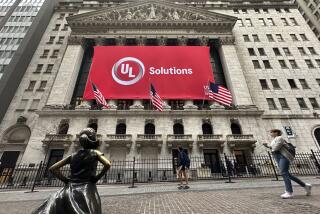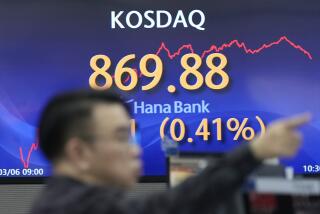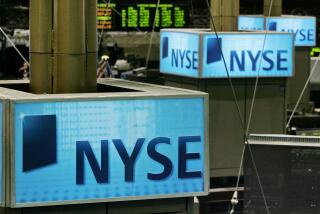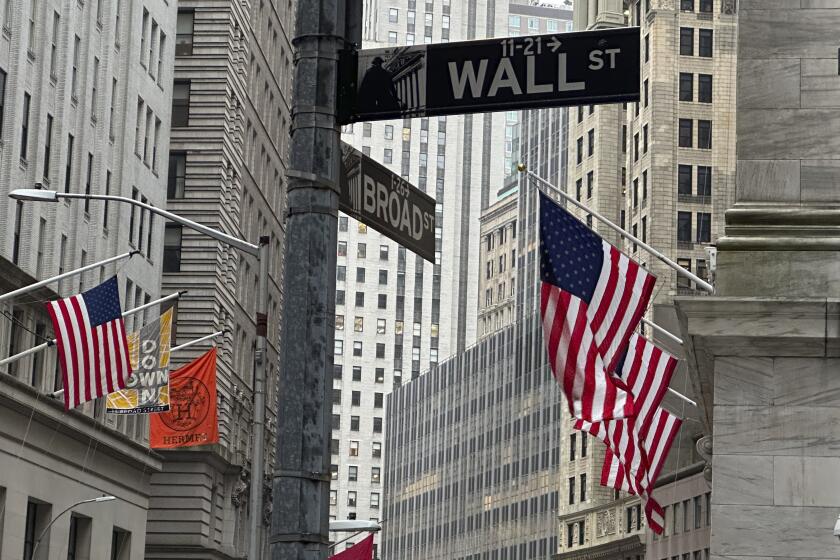Experts talk strategy after the stock plunge
After stocks plunged around the world Monday, many wounded investors were looking for guidance about how to respond. Here is what some experts had to say:
Mohamed El-Erian, chief executive of money management firm Pimco in Newport Beach:
“This is another hit to business and household confidence. And it comes on top of a series of other material hits because of disappointing economic data, a synchronized global slowing, a debt crisis in Europe and an erosion of trust in policymakers. Unless we see a proper reaction out of Washington, they unfortunately increase the risk of higher unemployment in the months ahead. And to make things even more regrettable and worrisome, they will likely lengthen the period of unemployment.”
Jim Cramer, host of CNBC’s “Mad Money” and chairman of TheStreet.com:
“I am entirely focused on gold as the ultimate tell. If we saw gold go down 10, 15 bucks, I would begin to go after high-yielding stocks and some of the highest-growing stocks, but right now: sideline, sideline, sideline.... There are places to go, I just need to know my timing. And my timing has got to be correlated on the idea that gold has had a short-term peak in sell-off so I feel better. I’m looking for comfort like everyone else.”
Gary Flam, equities portfolio manager at Bel Air Investment Advisors in Century City:
“The big question is ‘Are we heading into a new recession, or is growth just slower than a lot of people thought?’ We’re of the opinion that growth is just slower. Given that we don’t see a recession, the market is providing great opportunities to buy some great franchises. If you step back, you can use other people’s fears to your advantage. Think of blue chips with good balance sheets: Disney, Microsoft, Apple, Schlumberger. I think a 15% to 20% rally in the S&P 500 before year-end is a distinct possibility.”
Larry Harris, professor of finance at USC’s Marshall School of Business:
“The No. 1 mistake that individual investors make is they sell after prices have fallen and they buy after prices have risen. For the vast majority of people, the best strategy is to simply ignore the stock market and remain confident that in 10 or 20 years they undoubtedly will have more money if they have it invested in stocks than in bank accounts or bonds. This is especially true if we have any serious inflation in the future.”
Giles Almond, president of North Carolina-based Matrix Wealth Advisors, which manages $180 million for private investors:
“Most of the cattle in a stampede have no idea why they’re in a stampede. All they know is their fellow cow is moving, running and scared, so they imitate that behavior. We’re still looking for firm signs of a recession that we’re just not seeing. We’re telling our clients, ‘If you don’t have cash to buy, at least hold on to your equity positions.’”
Marilyn Cohen, president of Los Angeles-based Envision Capital Management, which manages bond portfolios for individual investors:
“It feels just like 2008. Clearly, it’s been a global equities sell-off. If people could stop being so freaked out … they’d see this is the kind of pullback people had been talking about. Eventually, buying will come. My clients are feeling OK. That’s why they have so much money in bonds, because they can’t take the volatility in the equity markets. A lot of the baby boomers, they don’t have the time to make up losses.”
Jonathan Corpina, a trader on the New York Stock Exchange for Meridian Equity Partners:
“We have not seen that bottom yet. When you get hit like this, everyone’s going to get hit by it.”
stuart.pfeifer@latimes.com







